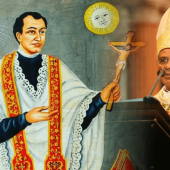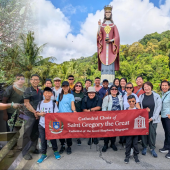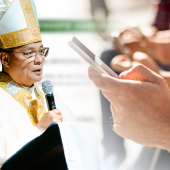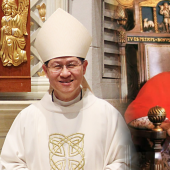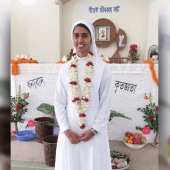SAGKI 2025: “The Catholic Church of Indonesia Must Become a Pilgrim of Hope”
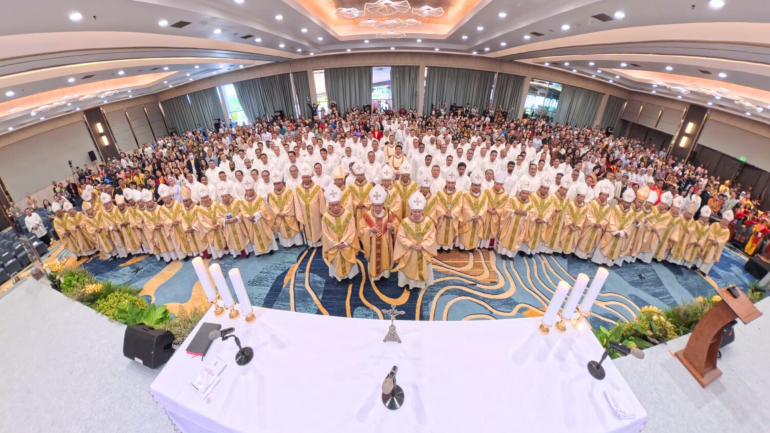
The Indonesian Catholic Church Assembly (SAGKI) 2025 officially concluded on November 7, 2025, with the presentation of its pastoral recommendations, calling especially for the Church in Indonesia to “become a Pilgrim of Hope.”
The assembly, held from November 3 to 7, 2025, in North Jakarta, gathered around 375 participants representing 38 dioceses across Indonesia and the Military and Police Ordinariate.
The closing session was highlighted by a concelebrated Eucharistic celebration presided over by Ignatius Cardinal Suharyo, Archbishop of Jakarta.
A Defining Moment
With the theme “Journeying Together as Pilgrims of Hope: Becoming a Synodal and Missionary Church for Peace,” the 5th SAGKI 2025 marked a milestone for the Catholic Church in Indonesia, reaffirming its pastoral direction and mission amid the challenges of the times.
The Church renewed its commitment to ongoing conversion and pastoral renewal, reasserting its identity as a synodal, missionary, and peace-bearing Church, in continuity with the spirit of the 2021–2024 Synod of Bishops.
Key Recommendations from SAGKI 2025
In the recommendations read during the closing session, the delegates emphasized that:
• The Church is called to journey together, listening to the voice of the Holy Spirit through the voices of the faithful, especially the small, the weak, the poor, the marginalized, and persons with disabilities.
• The Church must become a prophetic community that courageously proclaims the truth, reveals the merciful face of God, and nurtures a social life that is just, open, and humane.
• The Church is also invited to be a bearer of peace and reconciliation amid social, cultural, and political conflicts, and a sign of hope in a wounded world.
Integral Faith Formation
To fulfill this missionary calling, SAGKI underscored the importance of integral faith formation, the development of mature individuals in faith, heart, and mind, so that the faithful may manifest the face of Christ in their daily lives.
The Church is also encouraged to cultivate an ecclesiology of hope, actively fostering an ecological habitus, promoting social justice, and upholding human dignity and the integrity of creation.
In this context, the Church is called to serve as a moral bridge between the state, the business sector, and civil society, upholding justice, solidarity, and the common good.
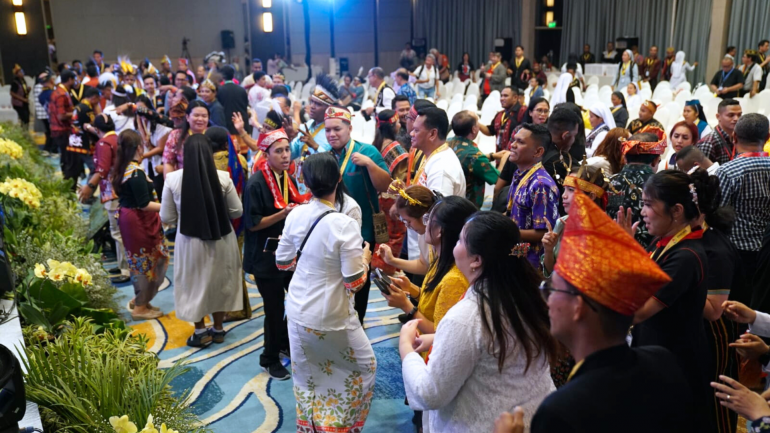
Special Attention to Specific Groups
SAGKI 2025 gave special attention to young people, women, the elderly, and persons with disabilities.
• Young people are encouraged to become missionaries of hope amid the digital world and the current crisis of values.
• Women should be given space to participate and lead in ecclesial life.
• The elderly and persons with disabilities are recognized for their dignity and faith wisdom as integral members of the Body of Christ.
The Church is invited to foster a culture of intergenerational dialogue and to ensure that all the faithful, without exception, can take an active part in the life and mission of the Church.
Interfaith and Intercultural Dialogue
SAGKI also emphasized the importance of interfaith and intercultural dialogue as a vital path toward deepening fraternity and peace.
The Church is expected to take the lead in building spaces of genuine human encounter within Indonesia’s plural society and to act as a prophetic voice in safeguarding the integrity of creation, inspired by the spirit of Laudato Si’.
A Call to Continue the Journey
The SAGKI 2025 recommendations concluded with a reminder that this process should not end at the level of meetings but should be lived out and carried forward in every diocese, parish, and community of the faithful.
“He who began a good work among you will carry it on to completion until the day of Christ Jesus.” (Philippians 1:6)
The Catholic Church of Indonesia is called to become a Pilgrim of Hope, journeying with all humanity, kindling the flame of love, and revealing the peaceful face of God in the world.
Radio Veritas Asia (RVA), a media platform of the Catholic Church, aims to share Christ. RVA started in 1969 as a continental Catholic radio station to serve Asian countries in their respective local language, thus earning the tag “the Voice of Asian Christianity.” Responding to the emerging context, RVA embraced media platforms to connect with the global Asian audience via its 21 language websites and various social media platforms.









